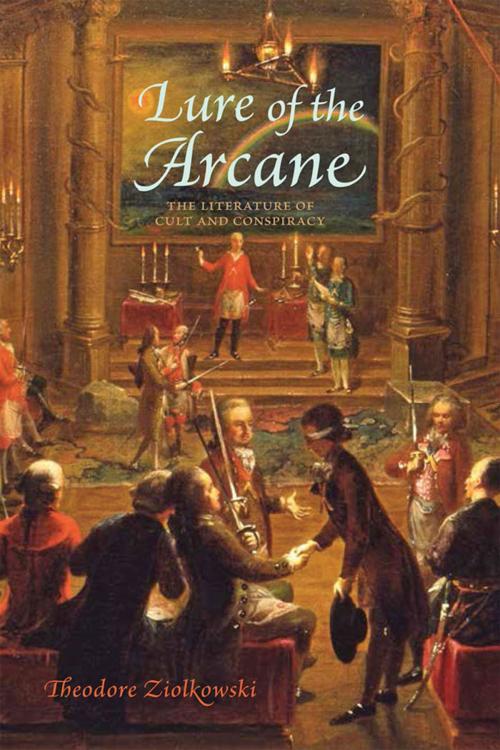Lure of the Arcane
The Literature of Cult and Conspiracy
Fiction & Literature, Literary Theory & Criticism, Ancient & Classical, Theory| Author: | Theodore Ziolkowski | ISBN: | 9781421409597 |
| Publisher: | Johns Hopkins University Press | Publication: | August 15, 2013 |
| Imprint: | Language: | English |
| Author: | Theodore Ziolkowski |
| ISBN: | 9781421409597 |
| Publisher: | Johns Hopkins University Press |
| Publication: | August 15, 2013 |
| Imprint: | |
| Language: | English |
Fascination with the arcane is a driving force in this comprehensive survey of conspiracy fiction. Theodore Ziolkowski traces the evolution of cults, orders, lodges, secret societies, and conspiracies through various literary manifestations—drama, romance, epic, novel, opera—down to the thrillers of the twenty-first century.
Lure of the Arcane considers Euripides’s Bacchae, Andreae’s Chymical Wedding, Mozart’s The Magic Flute, and Eco’s Foucault’s Pendulum, among other seminal works. Mimicking the genre’s quest-driven narrative arc, the reader searches for the significance of conspiracy fiction and is rewarded with the author’s cogent reflections in the final chapter. After much investigation, Ziolkowski reinforces Umberto Eco’s notion that the most powerful secret, the magnetic center of conspiracy fiction, is in fact "a secret without content."
Fascination with the arcane is a driving force in this comprehensive survey of conspiracy fiction. Theodore Ziolkowski traces the evolution of cults, orders, lodges, secret societies, and conspiracies through various literary manifestations—drama, romance, epic, novel, opera—down to the thrillers of the twenty-first century.
Lure of the Arcane considers Euripides’s Bacchae, Andreae’s Chymical Wedding, Mozart’s The Magic Flute, and Eco’s Foucault’s Pendulum, among other seminal works. Mimicking the genre’s quest-driven narrative arc, the reader searches for the significance of conspiracy fiction and is rewarded with the author’s cogent reflections in the final chapter. After much investigation, Ziolkowski reinforces Umberto Eco’s notion that the most powerful secret, the magnetic center of conspiracy fiction, is in fact "a secret without content."















